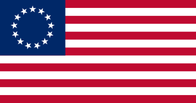This wasn’t the young lieutenant’s first combat; he was in battle against British Regulars at Harlem Heights in September (a Continental victory) and then again during a raid on Tories (Americans loyal to the crown) at White Plains in October (another victory). Those victories had little impact on the British advance – that happened at Trenton.
The 2,400 soldiers preparing for battle that Christmas day were the best the American’s had – or more accurately – about all they had. The British had run the Continentals across and out of New Jersey. Soldiers’ enlistments were expiring January 1 and there wasn’t enough of anything (like shoes, blankets and coats) and barely a revolution. In Trenton, protected by the river, was a British camp garrisoned by mercenaries: these were Hessians – professional soldiers the British crown ‘rented’ from German princes and deployed against Washington and the rebellion.
Richard Hanser’s 1976 book, The Glorious Hour of Lt. Monroe, is a biographical tale of revolutionary moments; Lt. Monroe’s big moment takes place on the 26th during the assault. What follows is an excerpt from Hanser’s book (p. 132-3); it’s in the first-person and it’s the voice of Lt. Monroe (50 years older) writing about that night and an encounter he had guarding the crossroad:
“After crossing the river I was sent with my command [a piece of artillery] to the intersection of Pennytown [now Pennington] and Maiden Head [now Lawrenceville] roads, with strict orders to let no one pass until I was ordered forward. Whilst occupying the position, the resident of a dwelling some distance up a lane had his attention directed to some unusual commotion by the barking of dogs. He came out in the dark to learn the cause, and encountered my command, and supposing we were from the British camp ordered us off.
“He was violent and determined in his manner, and very profane, and wanted to know what we were doing there on such a stormy night. I advised him to go to his home and be quiet, or I would arrest him. When he discovered that we were American soldiers, he insisted that we should go to his house and not stay out in the storm, and he would give us something to eat. I told him my orders were strict and we could not leave. When he returned to the house, he brought us some victuals.
“He said to me, ‘I know something is to be done, and I am going with you. I am a doctor, and I may help some poor fellow.’ When orders came for us to hasten on to Trenton, the doctor went with us.”
Let's pause here for tomorrow’s post ~ “Major Wilkinson, this is a glorious day for our Country.”
Merry Christmas All ~ Peace-up!
Bryan W. Brickner

 RSS Feed
RSS Feed
